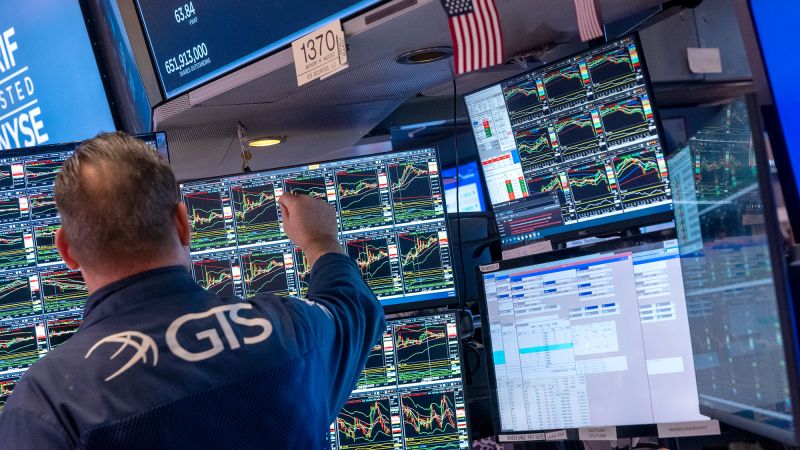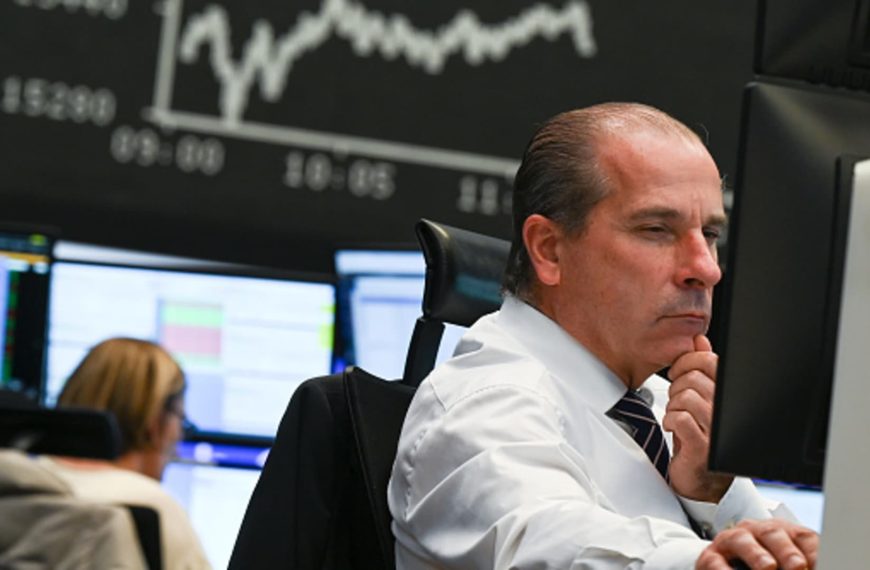After a tumultuous few trading days that saw significant losses, Wall Street investors are finally finding a moment of reprieve. Recent data indicates a slight rebound, which could hint at a stabilizing market, at least for the time being. With Dow futures soaring by 700 points, or 1.8%, and both S&P 500 and Nasdaq futures showing promising increases, investors are cautiously optimistic.
Market Rebound Amid Tariff Concerns
Over the past week, stock prices faced a steep decline, primarily driven by fears surrounding President Trump’s tariff policies. The potential for these tariffs to trigger a recession loomed large, yet after three days of market turmoil, many investors are now viewing this as an opportunity to buy undervalued stocks. The price-to-earnings ratio for S&P 500 companies dipped below 17, a historically low figure that suggests some stocks may be oversold.
Tariff Implications and Investor Sentiment
Despite the recent positive movement, uncertainty remains high. The Trump administration’s decision to impose 10% tariffs on nearly all imports is just the beginning, as further increases are expected. Some tariffs could soar to 50% for specific countries, and a staggering 70% on Chinese goods is on the horizon. Trump has even hinted at an additional 50% tariff on China should they retaliate, a move that could escalate tensions further.
China’s finance minister has vowed to "fight to the end" against U.S. tariffs, signaling that this trade war is far from over. Analysts from major Wall Street firms, including Goldman Sachs and JPMorgan Chase, warn that any intensification of this conflict may precipitate a recession in the U.S. and globally, potentially dampening demand for stocks.
Diverging Views on Market Recovery
While some officials in the Trump administration express optimism about the market’s trajectory, others remain skeptical. Peter Navarro, Trump’s chief trade advisor, confidently proclaimed on Fox News that the market is "finding the bottom," suggesting that U.S. companies will lead the way to recovery. He even boldly predicted a Dow 50,000, dismissing fears of a recession.
Contrarily, Jamie Dimon, CEO of JPMorgan Chase, cautioned in his annual letter to shareholders that tariffs could inflate prices, hinder global economic growth, and weaken the U.S.’s international relationships. Even notable supporters of Trump, like Elon Musk and Bill Ackman, have voiced concerns over the detrimental effects of tariff policies.
Global Market Movements
Amidst these mixed signals, stock markets across the globe exhibited gains on Tuesday.
- Asian markets showed resilience, with Japan’s Nikkei 225 closing up 6%, while South Korea’s Kospi rose by 0.3%.
- Australia’s ASX 200 climbed 2.3%, and Hong Kong’s Hang Seng Index rebounded by approximately 1.5% after experiencing a staggering 13% drop the previous day, marking its worst decline since the 1997 Asian financial crisis.
In Europe, the mood was similarly positive, with the STOXX 600 index increasing by 1.4%. France’s CAC index and Germany’s DAX rose by 1.6% and 1.3%, respectively, while London’s FTSE 100 gained 1.9%.
As investors navigate this complex landscape, the focus remains on how tariff policies will shape the economy moving forward. The current bounce back may be fleeting, but the interplay between government actions and market responses will continue to captivate Wall Street and beyond.










